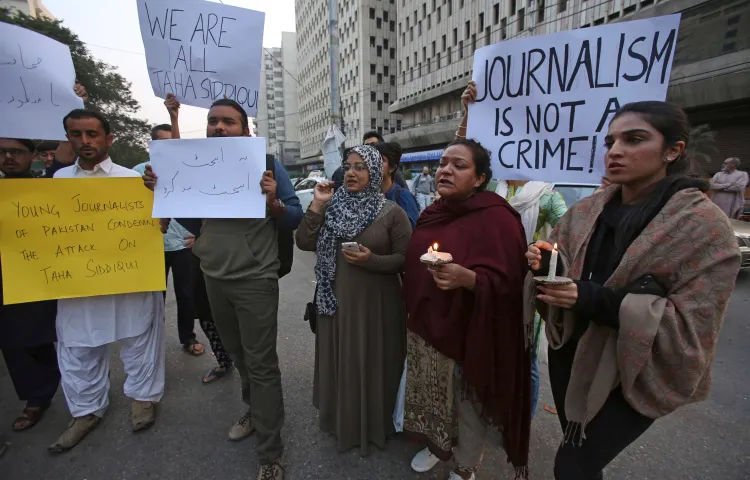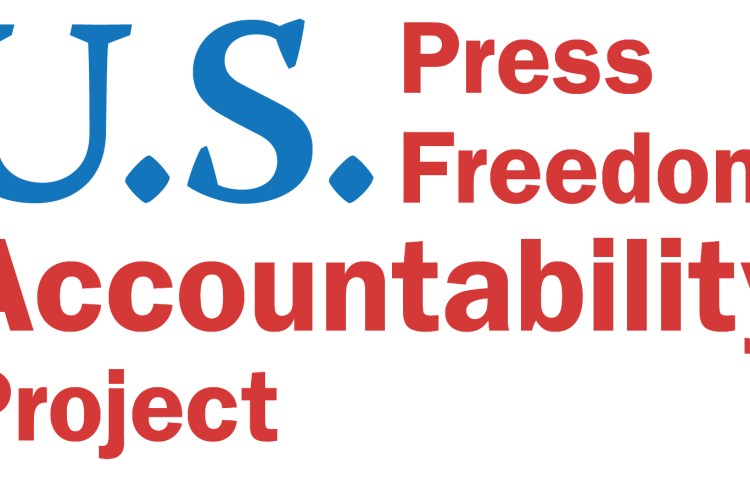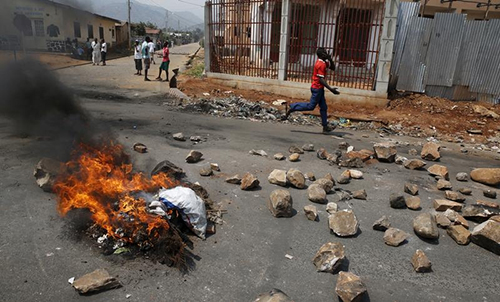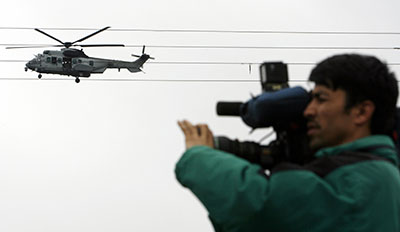
CPJ highlights risks for journalists who flee; calls on nations to create special emergency visas
Searching for safety, journalists in exile are often trapped in a vicious circle New York, June 17, 2021– The Committee to Protect Journalists today called on governments to provide safe refuge to journalists at risk through special emergency visas, in a feature and recommendations released ahead of World Refugee Day. Drawing on CPJ’s work over…

At-risk journalists who must flee home countries often find few quick and safe options
In 2018, journalist Mohammad Shubaat was in Daraa, Syria, caught between advancing forces aligned with Syrian President Bashar al-Assad and the closed borders of Israel and Jordan. Despite the dire threat to Shubaat and many of his colleagues, it would take over a year of intense negotiations with some 20 countries by the Committee to…

CPJ, NLA launch initiative to boost reporting on press freedom in the U.S.
U.S. Press Freedom Accountability Project to award grants for coverage of attacks on journalists during Black Lives Matter protests New York, September 3, 2020– In light of recent unprecedented attacks on journalists around the United States, the Committee to Protect Journalists (CPJ), in collaboration with the News Leaders Association (NLA), today launched the U.S. Press…

Silence in Burundi as violence forces independent press into exile
On June 24, a grenade was thrown through the window of Voice of America correspondent Diane Nininahazwe’s home. It was one of three cases CPJ has documented in recent months where grenades were thrown into the homes of journalists in Burundi’s capital, Bujumbura. Fortunately, there have been no fatalities, but there have also been no…

Mission Journal: Ethiopian journalists must choose between being locked up or locked out
A sharp increase in the number of Ethiopian journalists fleeing into exile has been recorded by the Committee to Protect Journalists in the past 12 months. More than 30–twice the number of exiles CPJ documented in 2012 and 2013 combined–were forced to leave after the government began a campaign of arrests. In October, Nicole Schilit…
Solidarity in wake of Foley’s murder inspires jailed Al-Jazeera journalist Mohamed Fadel Fahmy
Al-Jazeera journalist Mohamed Fadel Fahmy has been languishing in an Egyptian prison since December. He is waiting for an appeal hearing on his seven-year sentence for “conspiring with the Muslim Brotherhood,” but it is the murder of American freelancer James Foley, rather than his own unjust sentence, that has made the Cairo bureau chief furious.…

Getting ready for contingencies in Afghanistan
Considering the worst-case scenarios for post-2014 Afghanistan, international news agencies should start planning a range of assistance responses for locally hired journalists and media staff. By the end of 2014, NATO troops will have largely withdrawn and the Karzai government will make way for a new administration. If the situation becomes chaotic, Afghans working for…

For exiled Eritreans in Sudan, fear greater than most
With the launch of CPJ’s most recent exile report, I will have worked exactly three years for our Journalist Assistance program. More than 500 cases later, I have helped journalists who have gone into hiding or exile to escape threats; those in need of medicine and other support while in prison, and journalists injured after…

Assisting journalists forced to flee censorship
CPJ’s Journalist Assistance Program supports journalists who cannot be helped by advocacy alone. In 2011, we assisted 171 journalists worldwide. Almost a fourth came from countries that made CPJ’s Most Censored list. Eight journalists from Eritrea, five from Syria, six from Cuba, and a whopping 20 from Iran sought our help after being forced to…

Expelled from Cuba jails, journalists languish in Spain
In 2010, following midsummer negotiations between the Catholic Church and the government of President Raúl Castro, Cuban authorities began releasing imprisoned journalists, sending them into forced exile with their families. In April 2011, the last of more than 20 journalists arrived in Spain. They had been granted liberty and respite, and were promised support from…